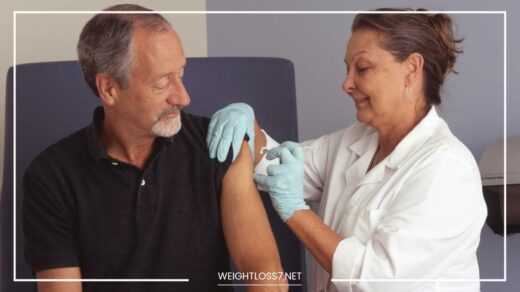Best Probiotic for Women

Best Probiotic for Women
The Quest for Balance: Unveiling the Best Probiotics for Women’s Unique Needs
In an era where wellness takes center stage, the intricate world of the human microbiome has captured significant attention.
Among the myriad of health-boosting supplements, probiotics have emerged as powerful allies, particularly for women navigating their unique physiological landscape.
But with a seemingly endless array of strains and formulations flooding the market, the question inevitably arises: what is the best probiotic for women?
The truth, as is often the case with complex biological systems, is that there isn’t a single, universally superior probiotic for all women. Instead, the optimal choice hinges on individual needs, specific health concerns, and the intricate interplay of the diverse microbial communities within a woman’s body.
This comprehensive guide delves deep into the fascinating realm of probiotics, exploring their multifaceted benefits for women and providing the knowledge necessary to make informed decisions on this crucial aspect of health and well-being.
Understanding the Female Microbiome: A Symphony of Tiny Inhabitants
To truly appreciate the role of probiotics, it’s essential to first understand the intricate microbial ecosystems that reside within a woman’s body.
These communities, collectively known as the microbiome, are far from random collections of bacteria; they are dynamic, complex ecosystems that play a vital role in various aspects of health.
The gut microbiome, located within the digestive tract, is perhaps the most well-known. It’s a bustling metropolis of trillions of microorganisms, including bacteria, viruses, fungi, and protozoa.
This intricate community is crucial for digestion, nutrient absorption, immune system regulation, and even mental health through the gut-brain axis.
Equally important for women is the vaginal microbiome. This unique ecosystem is dominated by Lactobacillus species, which produce lactic acid, creating an acidic environment that inhibits the growth of harmful bacteria and yeast.
A healthy vaginal microbiome is the first line of defense against infections like bacterial vaginosis (BV) and yeast infections, contributing significantly to overall urogenital health and comfort.
Various factors can disrupt the delicate balance of these microbial communities. Antibiotics, while life-saving in many situations, can indiscriminately wipe out both harmful and beneficial bacteria.
Stress, dietary changes, hormonal fluctuations (including those associated with menstruation, pregnancy, and menopause), and even certain hygiene practices can also impact the composition and function of the microbiome.
When this balance is disturbed, it can lead to a range of health issues, highlighting the importance of supporting these beneficial microbial populations.
The Multifaceted Benefits of Probiotics for Women: Targeted Support for Unique Needs
Probiotics, defined as live microorganisms that, when administered in adequate amounts, confer a health benefit on the host, offer a targeted approach to supporting and restoring the balance of the female microbiome.
Their benefits extend far beyond simple digestion, offering specific advantages tailored to women’s unique physiological needs.
1. Championing Vaginal Health: A First Line of Defense
Perhaps the most well-researched benefit of probiotics for women lies in their ability to support and maintain a healthy vaginal microbiome.
Bacterial vaginosis (BV), a common condition characterized by an overgrowth of anaerobic bacteria and a decrease in Lactobacillus species, can cause uncomfortable symptoms like abnormal discharge, itching, and odor.
Studies have shown that specific strains of Lactobacillus, such as Lactobacillus crispatus, Lactobacillus rhamnosus GR-1, and Lactobacillus reuteri RC-14, when taken orally or vaginally, can help to restore the dominance of beneficial Lactobacillus and alleviate BV symptoms.
Similarly, yeast infections, typically caused by an overgrowth of Candida albicans, can be a recurring issue for many women.
While probiotics are not a direct treatment for active yeast infections, certain Lactobacillus strains can help to create an environment less conducive to yeast overgrowth, potentially reducing the frequency of these infections.
The mechanisms involve the production of lactic acid, which lowers the vaginal pH, and the production of antimicrobial substances that inhibit the growth of harmful microorganisms.
Maintaining a balanced vaginal microbiome can prevent not only infections but also improve overall well-being and sexual health.
The influence of probiotics in supporting vaginal health extends to reducing discomfort associated with menstrual cycles, perimenopause, and menopause, helping women manage symptoms more effectively.
2. Fortifying Urinary Tract Health: Preventing Recurrent Infections
Urinary tract infections (UTIs) are another common ailment affecting women. The female anatomy, with a shorter urethra, makes women more susceptible to these infections, which can cause pain, burning during urination, and frequent urges to go.
Research suggests that specific probiotic strains, particularly Lactobacillus rhamnosus GR-1 and Lactobacillus reuteri RC-14, can play a significant role in preventing recurrent UTIs.
These strains are believed to work by colonizing the vaginal area and preventing harmful bacteria, such as E. coli, from migrating to the urinary tract and adhering to the bladder walls.
UTIs can be both painful and disruptive, especially when they occur frequently. Women who experience recurrent UTIs may find relief from probiotic supplements, which not only help prevent infections but also improve the overall health of the urinary tract.
Through regular use of probiotics, many women may see a reduction in the occurrence of these infections, leading to better urological health and a significant reduction in the discomfort that often accompanies UTIs.
3. Nurturing Gut Health and Digestion: Beyond the Basics
Just like men, women can experience a range of digestive issues, including bloating, gas, constipation, and Irritable Bowel Syndrome (IBS).
Probiotics can offer significant relief by introducing beneficial bacteria that help to balance the gut microbiome, improve digestion, and reduce inflammation.
Strains like Bifidobacterium lactis, Lactobacillus acidophilus, and Bifidobacterium longum are often found in probiotics aimed at supporting gut health.
They can help to break down food more efficiently, improve nutrient absorption, and alleviate symptoms associated with digestive discomfort.
For women with IBS, specific probiotic formulations have shown promise in reducing abdominal pain, bloating, and altered bowel habits.
For women dealing with more serious conditions, such as Crohn’s disease or ulcerative colitis, probiotics can offer support by reducing inflammation and promoting a healthier balance of bacteria in the gut.
Digestive issues can significantly impact daily life, but the addition of probiotics to one’s regimen can restore harmony within the gut microbiome and improve overall digestive health.
4. Bolstering Immune Function: A Stronger Defense System
A significant portion of the immune system resides in the gut, making the gut microbiome a crucial player in overall immunity.
Probiotics can help to strengthen the body’s natural defenses by promoting the growth of beneficial bacteria that interact with immune cells, enhancing their function and helping the body to better fight off pathogens.
Strains like Lactobacillus rhamnosus GG and Bifidobacterium bifidum have been extensively studied for their immune-boosting properties.
This can be particularly beneficial for women during times of stress or seasonal changes when the immune system may be more vulnerable.
The potential for probiotics to act as immune system modulators is one of the most exciting areas of research in microbiome science.
By enhancing the immune response, probiotics contribute to overall health and provide a stronger defense against colds, flu, and other infections that tend to affect women more frequently due to hormonal changes and stress factors.
5. The Gut-Brain Axis and Mental Well-being: A Surprising Connection
Emerging research has highlighted the intricate connection between the gut and the brain, known as the gut-brain axis.
The trillions of bacteria in the gut can influence brain function and vice versa. Studies suggest that certain probiotic strains, such as Lactobacillus helveticus and Bifidobacterium longum, may have a positive impact on mood and anxiety.
While more research is needed in this area, the potential for probiotics to support mental well-being adds another layer to their appeal for women, who are often more susceptible to mood disorders.
The mind-gut connection is especially important during periods of hormonal shifts—whether through menstruation, pregnancy, or menopause—when mood disturbances can become more pronounced.
Probiotics provide a natural and effective way to promote emotional balance, mental clarity, and overall mental health.
6. Supporting Skin Health: Beauty from the Inside Out
The gut microbiome also plays a role in skin health. An imbalance in gut bacteria can contribute to inflammation, which can manifest in various skin conditions like eczema and acne.
Certain probiotic strains, such as Lactobacillus paracasei, have shown promise in reducing inflammation and improving skin barrier function, potentially leading to clearer and healthier skin.
Many women struggle with skin issues linked to hormonal fluctuations, such as acne during their menstrual cycle or menopause.
Probiotics can play a role in stabilizing the skin’s response to these hormonal changes, providing a natural way to promote clearer, healthier skin from the inside out.
By improving gut health and reducing systemic inflammation, probiotics offer a holistic approach to skin wellness.
Navigating the World of Probiotic Strains: Decoding the Labels
With such a wide array of potential benefits, it’s crucial to understand that not all probiotics are created equal. The effectiveness of a probiotic supplement depends heavily on the specific strains it contains.
Different strains have different properties and target different areas of the body. This is why a probiotic marketed for gut health might not be the best choice for vaginal health, and vice versa.
When choosing a probiotic, pay close attention to the label. It should clearly list the genus, species, and strain of each bacterium included. For example, *
Lactobacillus rhamnosus GR-1* tells you the genus (Lactobacillus), species (rhamnosus), and strain (GR-1). This information is critical because it is the strain that determines the specific health benefits of the probiotic.
In addition to strain selection, the Colony Forming Units (CFU) count is an essential factor. The CFU indicates the number of live microorganisms in a dose, and different health conditions require different CFU counts.
Typically, higher CFU counts are recommended for more severe health concerns, while lower counts may suffice for general wellness.
Choosing the Right Probiotic for Your Needs: A Personalized Approach
Selecting the best probiotic for your health goals requires a personalized approach. Here are some key factors to consider:
- Your Health Goals: Whether you’re addressing vaginal health, digestive issues, immune support, or mental well-being, select a probiotic that targets your specific needs.
- Scientific Evidence: Research the strains included in the probiotic to ensure they have proven benefits for your specific health concerns.
- Formulation: Probiotics come in many forms, including capsules, powders, liquids, and even suppositories. Choose the format that fits your lifestyle and ensures that the active bacteria can reach their intended destination.
- Quality Control: Choose reputable brands that adhere to good manufacturing practices (GMP). Quality and purity are essential for ensuring the probiotic’s effectiveness.
- Consulting a Healthcare Professional: If you’re unsure which probiotic is right for you, consult with a doctor or registered dietitian. They can offer personalized advice tailored to your health needs.
Beyond Supplements: Embracing Probiotic-Rich Foods
While probiotic supplements are convenient, incorporating probiotic-rich foods into your diet is another fantastic way to support your microbiome naturally.
Foods like yogurt, kefir, sauerkraut, kimchi, kombucha, and tempeh provide a rich array of probiotics, in addition to offering other important nutrients.
These foods not only support gut health but also contribute to overall well-being, making them a valuable addition to a balanced diet.
Final Thoughts: Embracing the Power of Probiotics for Women’s Health
Probiotics offer a powerful tool in supporting women’s health, from managing digestive issues and balancing hormones to boosting immunity and improving skin health.
Understanding the unique needs of women’s microbiomes, as well as the specific benefits of probiotics, empowers women to make informed choices about their health.
By choosing the right strains and incorporating both supplements and probiotic-rich foods, women can harness the potential of probiotics to achieve a healthier, more balanced life.
Whether you’re seeking to address a specific health concern or enhance overall wellness, probiotics are a valuable addition to any health regimen, offering a natural, holistic solution for women’s diverse health needs. By embracing the power of probiotics, women can unlock a path to greater health and vitality.

















